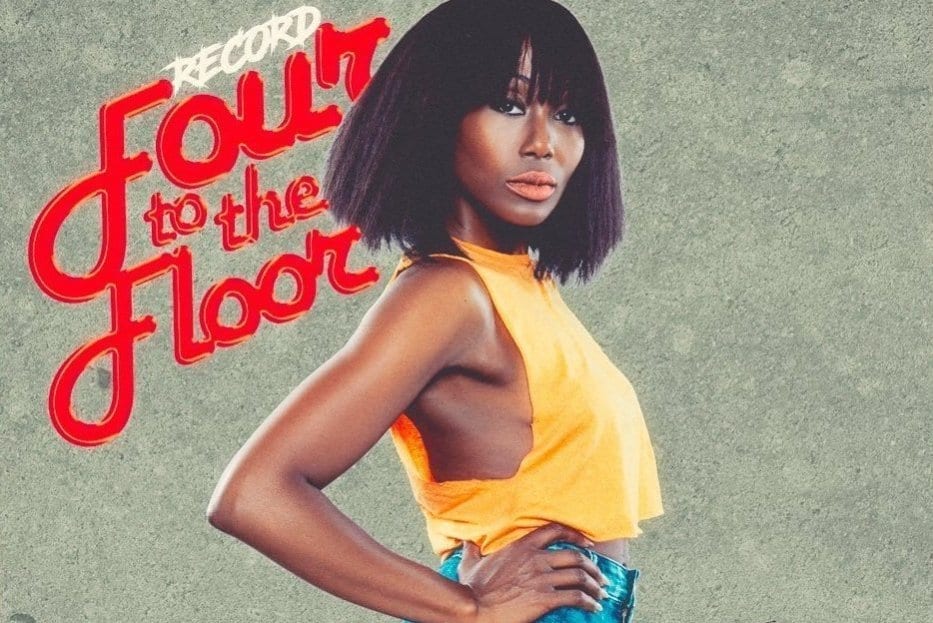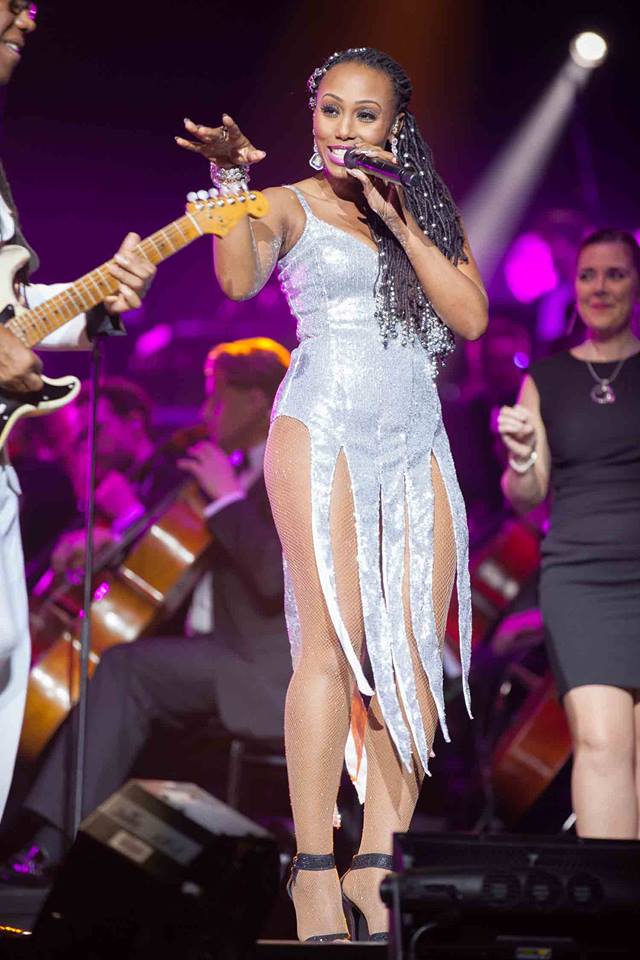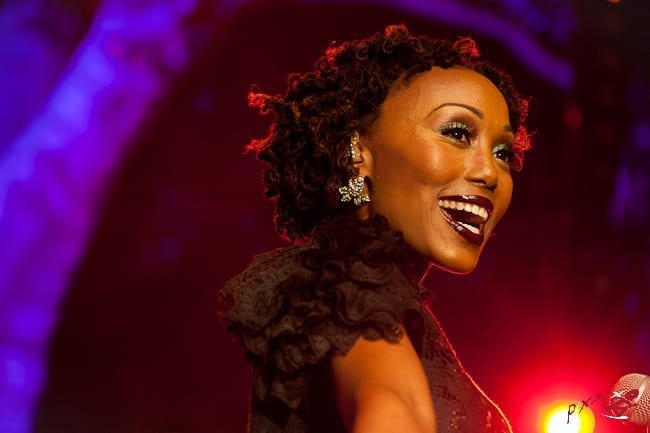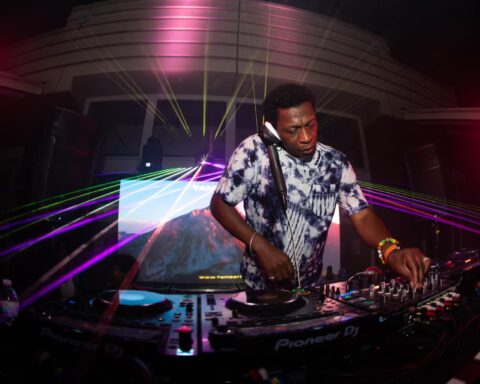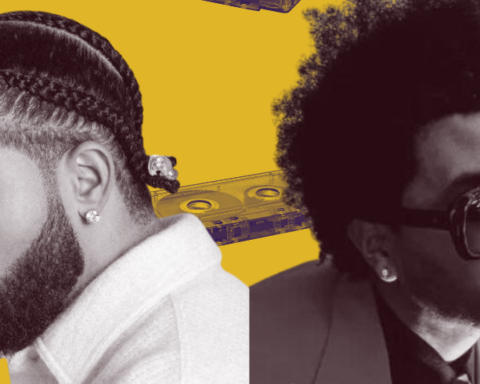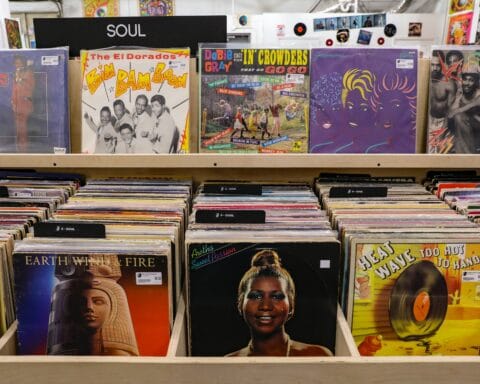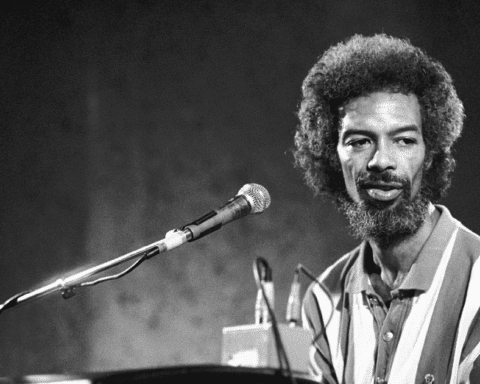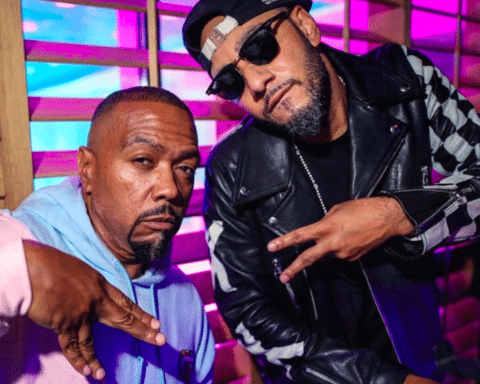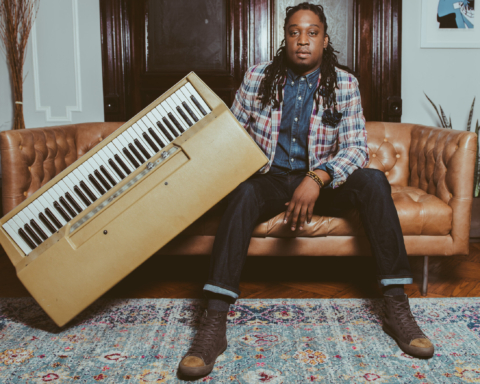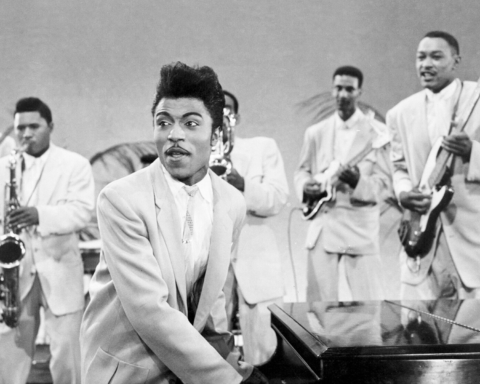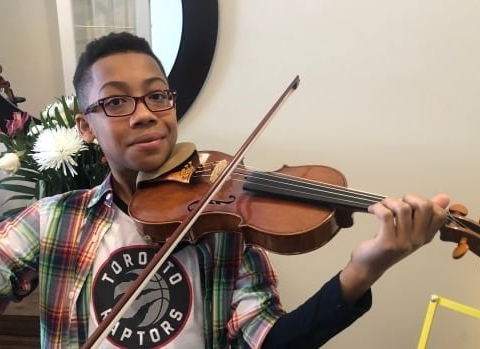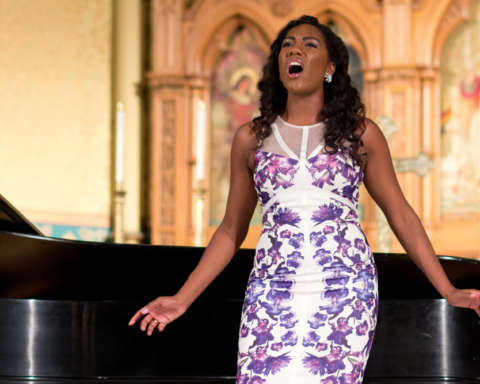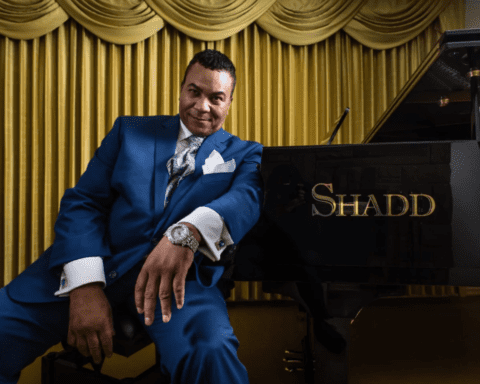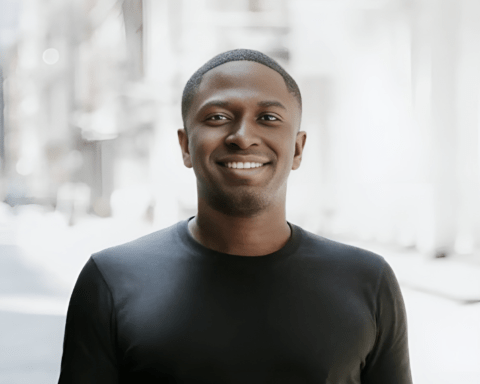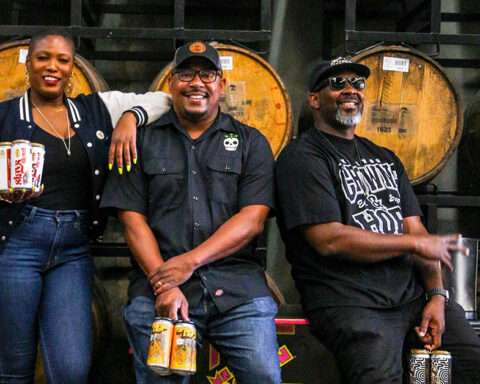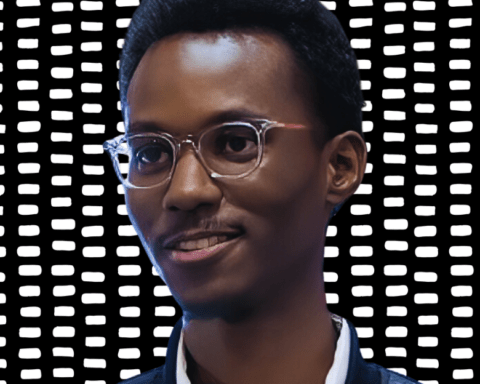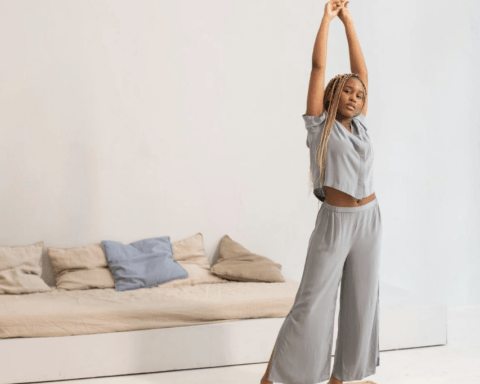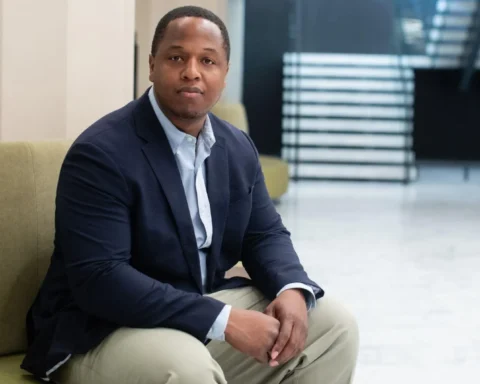If you haven’t been following Folami, one of the dazzling lead vocalists of disco’s greatest band, CHIC featuring Nile Rodgers, then you’re absolutely missing out! In this in-depth interview, Folami opens up about her path as a working entertainer and artist entrepreneur.
We cover everything from how essential her family and Afrocentric upbringing were in leading to her theater arts education at Howard University, to her legacy in establishing Folluminati LLC along with the music duo Lester & Folami and their nonprofit, Empower The Creator.
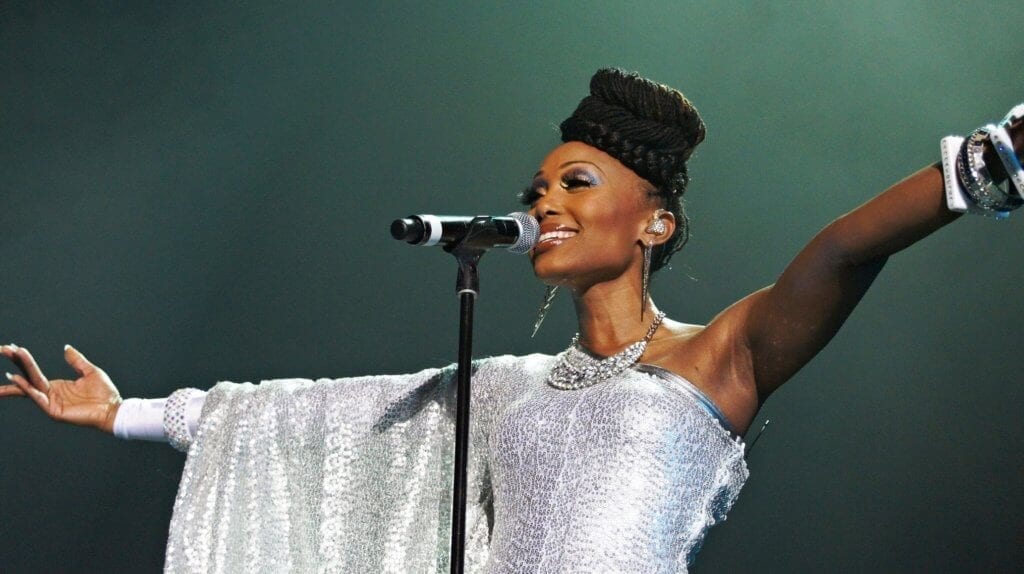
Take me back to 10 years ago, just before getting the call to join CHIC featuring Nile Rodgers in 2008. What was life like for you then?
There were times when I wasn’t sure that I was still following my greatness… because coming out of Howard was a whole lot, you know what I mean? Graduating and studying at an institution like that was really a lot for me, a really big accomplishment. And then coming to Atlanta, and refinding, restarting and recharging, setting my life up for whatever I was setting out to do, I had a lot of failures.
I had a lot of different moments when I wasn’t sure if I was still doing the right thing, and if I was doing my purpose work. But one thing I did do, and was very consistent with, was making sure that I did not have a 9-to-5. Because I knew in my mind that if I had a 9-to-5 then that would cancel me out for opportunities to come. So I worked effortlessly on all types of side jobs. At one point I had five different jobs, but they were all part-time jobs. And I was in the studios, you know, studio hopping, meeting people.
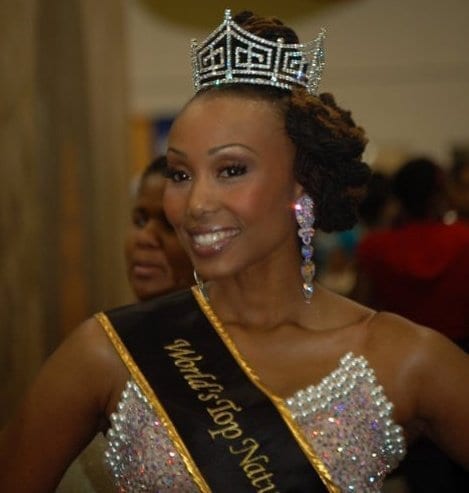
I was around the Janelle Monae camp, Wondaland Society, early on before the big boom, and I was just trying to absorb and fill the void of what I’d felt at Howard. I felt so much love and camaraderie, and so many people of like-minded energy, and I was just in Atlanta trying to feel my way through. One day I went through the newspaper and wrote down every single open mic they had, and I went to every single one. I would sing and just try to meet as many people as I could and just feel it out.
But like I said, there were moments when I was not sure what I wanted to do. And every single time I felt like, “Let me do something else,” or thought, “Let me just stop,” I would get a phone call the very next day. I would get an email… I would get a confirmation that “You’re going in the right direction, just stay the course. Stay the course.” And I’m telling you, there was blood, sweat and tears… So, I knew that Howard had given me a foundation that I trusted and had to build upon.
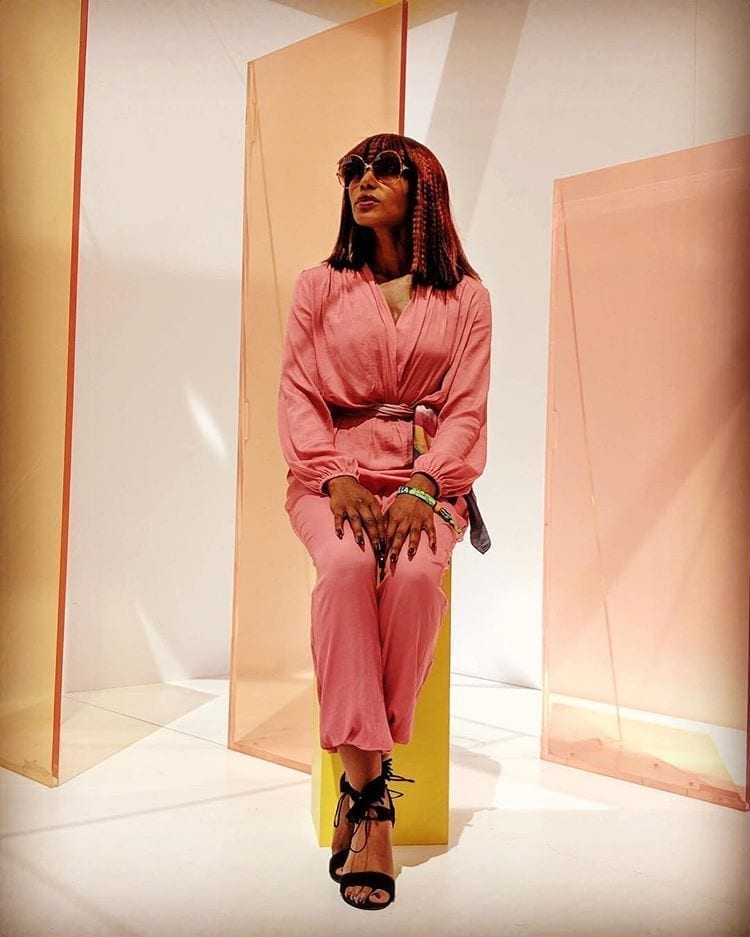
I understand that a former music teacher at Howard was responsible for you being asked to join CHIC?
Yes, when I got the phone call for CHIC, they hit me up and were like, “Can you be here tomorrow?” And I absolutely said, “Yes.” That was the lightbulb like, “Yes!” There are things I slacked off on, but what I did stay firm in was making sure I was available. So got myself a ticket and I went to the audition.
The audition was in D.C. because Daryl Hunt was a student teacher at Howard, and I’d taken one of his courses, so he reached out to me. His future wife, Sylver Logan Sharp was the lead singer of CHIC and was in the process of trying to find a sub. All the singers they came across were not cutting it. They had requirements. Height requirement, vocal requirements, and they needed to fit at least a few checks, not just one check. Everybody else they auditioned just fit one check-off box.
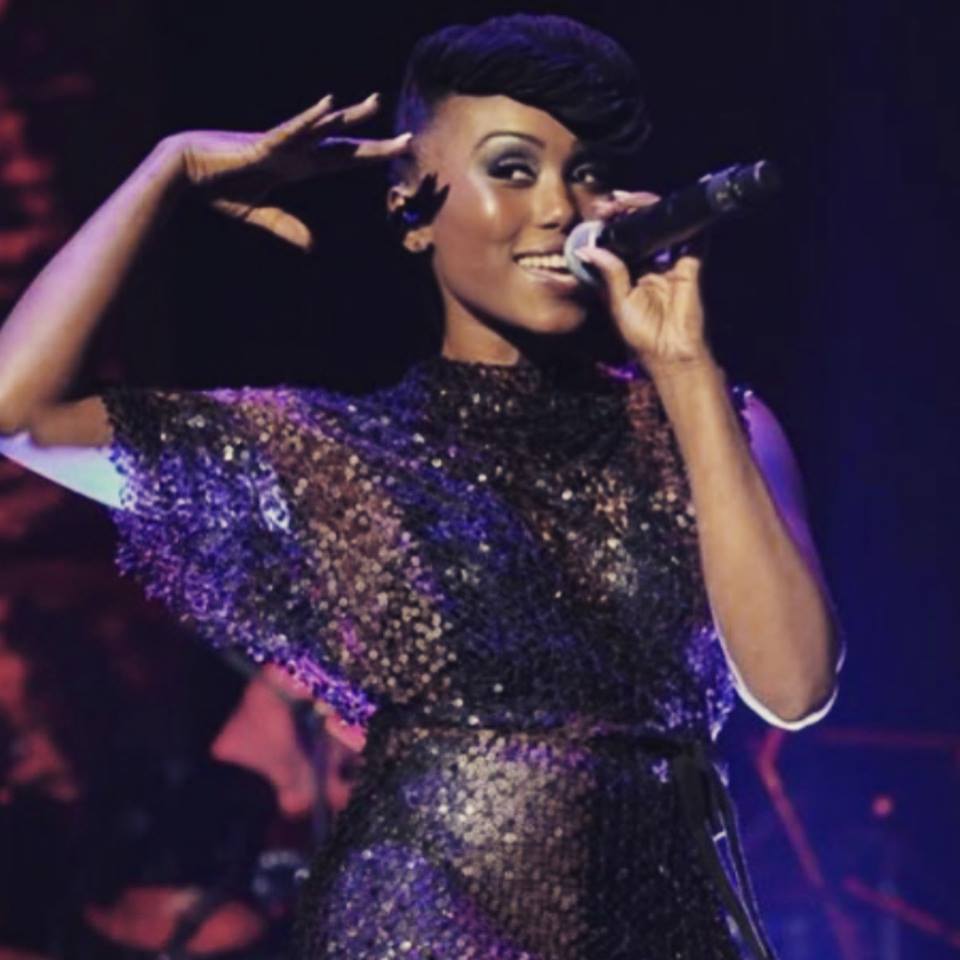
So, Daryl was like, “Folami!” …Folami was the first name they thought of that checked all of the boxes. So, Sylver called me and said, “Can you get here?” and I said, “Yes.” She said, “Make sure that you look just like the person you’re subbing for, I want you to study… I want you to nail these Diana Ross songs because that’s mostly what you’re going to be singing. So I need you to come with that embodiment.” And as I had studied acting and theater, that was a no-brainer for me. Let’s get it!
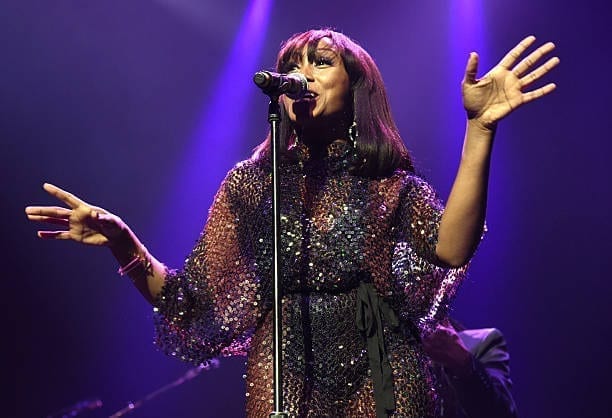
So, I went to the audition and I actually never left DC to go back to Atlanta. I went straight up to New York from D.C. because I got hired on the spot since they actually had an upcoming performance. I didn’t even have enough clothes! I only had one day’s worth of clothes because I was supposed to go right back. They changed my ticket. I studied the entire show with Sylver for about two weeks. And my first show was April 28, 2008. And I was on stage with the We Are Family Foundation Gala.
CHIC and Nile Rodgers, Eric Benet, Micky Dolenz from the Monkees, Slash from Guns N’ Roses, and Patti LaBelle were the special guests and honorees for the Foundation. And that was my first performance with CHIC, with all of those great people. And such an array of people. It wasn’t just R&B. You’re talking about pop music, rock music, R&B greats, gospel greats, all on stage. This was my first experience. So, you know, from there, it was just a kaboom! It just took off.
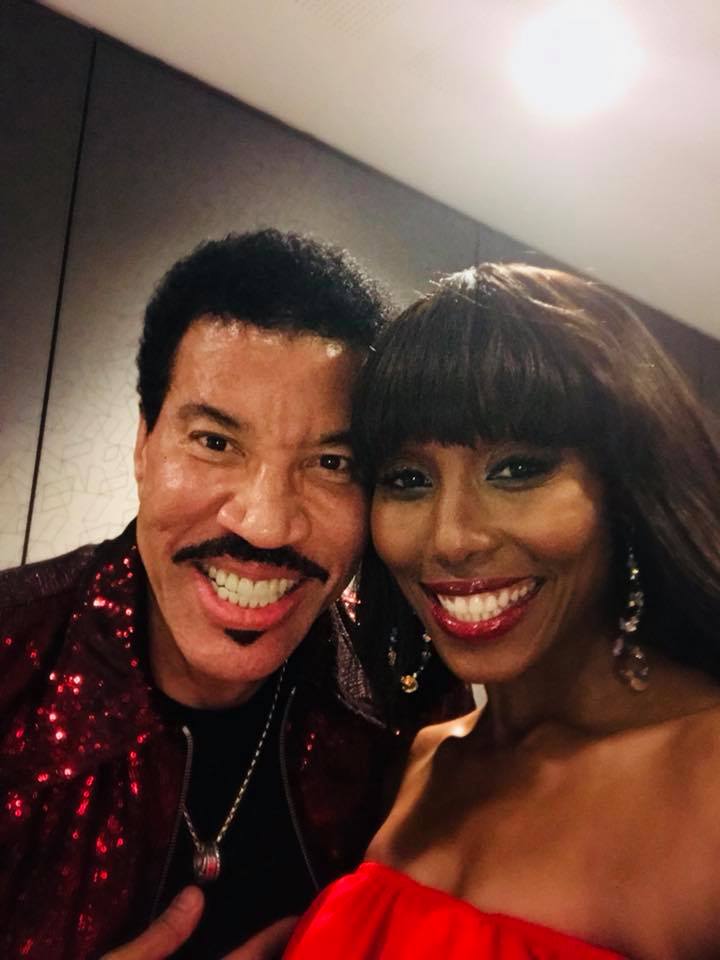
Another thing about studying at Howard University was just… You know, as I look back at the people… just to sit there and watch Chadwick Boseman do the commencement speech at Howard, and me being able to say, “I had the SAME experiences that he had!” The same teachers, the same fight.
The same everything. I studied in that same department. That, right there, is definitely one of those moments, newly, for me. I watched that commencement speech balling my eyes out with happiness and it being such a proud moment for everyone that came out of that department. Because it definitely was a struggle.
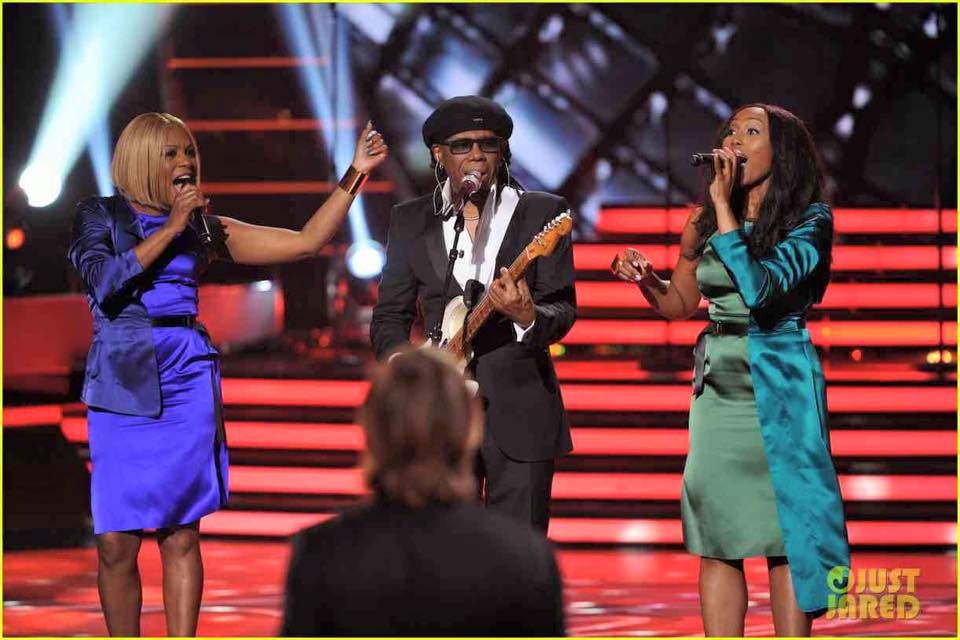
Tell me about your mother laying the groundwork in your decision to become a working artist through her Afrocentric primary school in East Palo Alto, CA?
My mother comes from the Black Nationalist Movement. So let’s just start there. She was a part of the Black Panthers/Black Nationalist Movement, and she was dedicated to making sure that the children had what they needed to succeed. African American children need to know where they come from, first. If you don’t know where you come from, for anybody, then you can’t know where you are going: Sankofa.
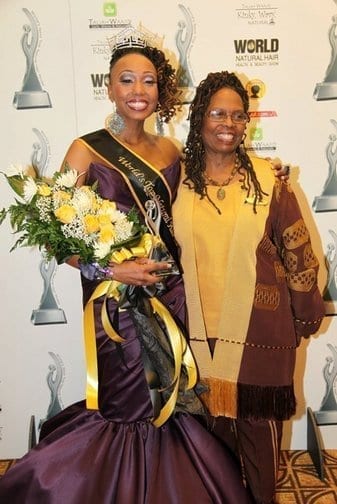
You know what I mean. So, the school that I studied in basically gave us everything we needed to know, all the keys of life. And we were very consistent. We studied history. We studied culture. We traveled. We understood that performing arts was more than just trying to be a star. It was building things that you need to have just as a human being. I was discussing this with my mom just the other day, like, what she did for me helps me in performing arts and helps other people across the board.
Just being able to speak in front of people, because everyone has to do a presentation at some point if you’re going to excel. Everyone has to speak. Everybody has to be eloquent. Everybody has to project. Everyone has to appease to the audiences. You have to understand personality types, and all of these things. And that’s what performing arts does for you. It gives you confidence.
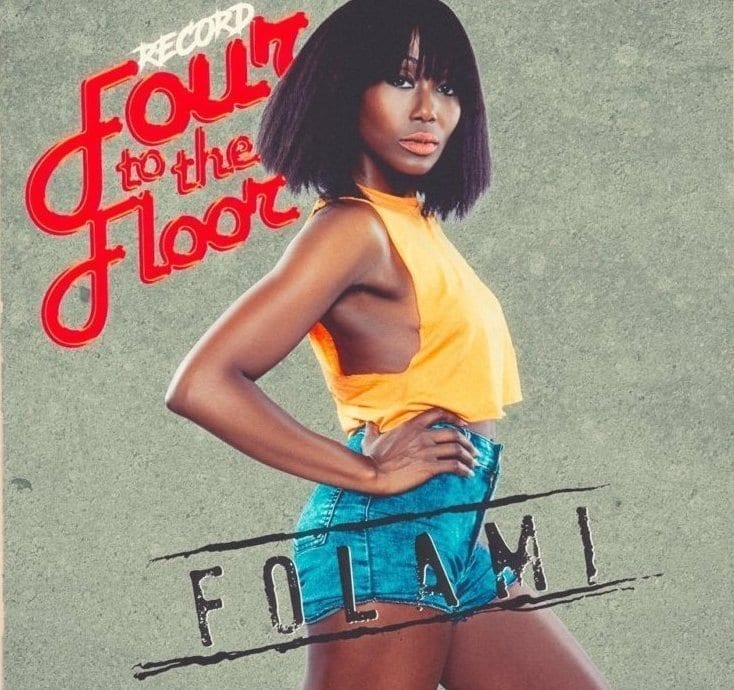
It gives you the ability to ebb and flow, and be able to mood swing with people because that’s what life is. It’s a bunch of people trying to cohabitate, and get things done. So, this school gave us so many different things. I studied Tai-Chi. I studied gardening. French, Swahili. Tumbling and gymnastics. We traveled all up and down the peninsula of the Bay area performing. We did many, many things that were Afrocentric and very much outside the box.
So much so that outside schools in the area were kind of like, “Wow.” And there are schools to this day that are trying to model the institution, Shule Mandela Academy, School of Wisdom and Knowledge, that my mother established. We had meditation classes, literally. We were doing all types of work for the mind, body, and soul. At the time, there were no more than fifty students.
Very, very small and close knit. We had a bit of everything. Nutritional classes. My mother helped us understand why we shouldn’t eat the certain things that make us ill. She taught, was the principal and ran the school. She was a cofounder along with a few of the other parents. They started the school because at the time she wanted to make sure that her five children were educated properly in the best way.
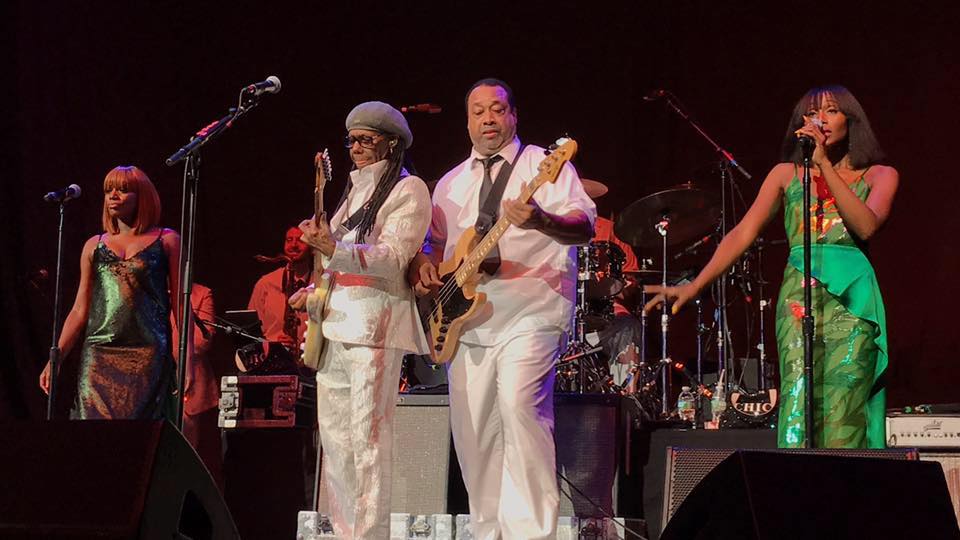
What was your father’s influence in your decision to become an artist?
My father was also a part of the same movement. My mother and him met in the seventies and he was in the school district as a teacher. He also studied musical theater at UC Irvine, which I found out later after he passed away. He basically was a true entertainer at heart.
He was a percussionist, played the drums, he sang, he danced. He played all types of instruments, and made his own instruments. I’m also an artist so he taught me how to carve out of wood and make drums, balafons and shekeres, and different types of things to help him with his own percussion and things that he did. He had all types of classes in our school as well, and would perform around the peninsula with his own drum and dance group. He was very much dedicated in the same type of practices.
So that community and lifestyle in the Nationalist Movement just channeled right on down into him and my mother, and they kept it going through the school and in their own children. I definitely embody him so much because I learned how to be dedicated to my craft and not have anything stop me or get in my way. My dad was the type of person that would just never let anything get in his way. And if it did, he would just shut it off. So I learned how to do that, and stay the course because of what he taught me.
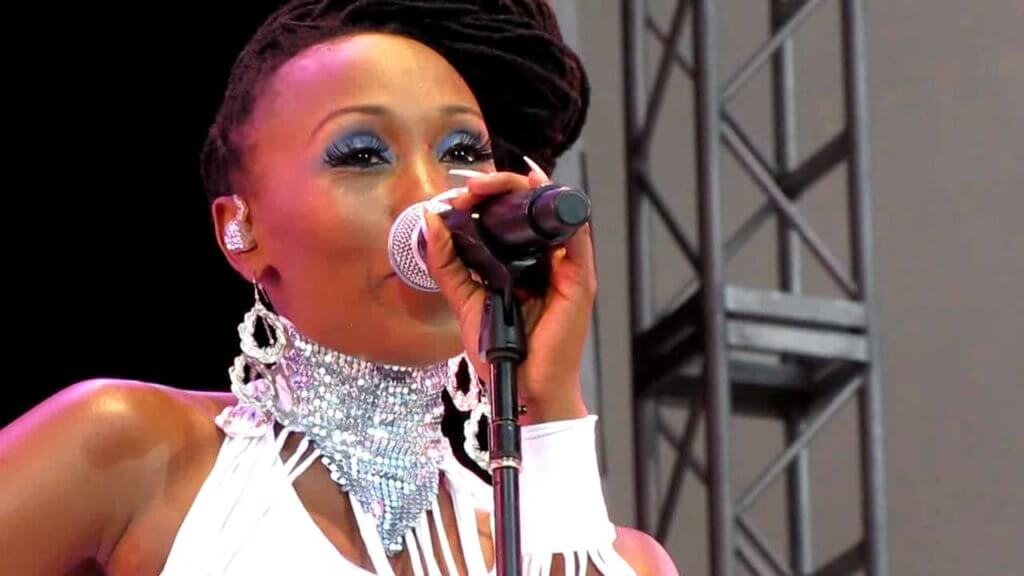
You must have the illest bucket list? I’ve read about your experiences in meeting the Obamas and Nelson Mandela, jamming with Prince, and performing in front of 250,000 concert goers at Glastonbury in the UK. What could possibly be left on your bucket list?
Motherhood, believe it or not. Because of how I’ve grown up, there were so many people who influenced me and I just see these children who need to be more influenced. What a gift it would be to have my own kids and continue my own legacy because those are the people who will be talking about me when I’m gone. So that’s really important to me as a bucket-list item.
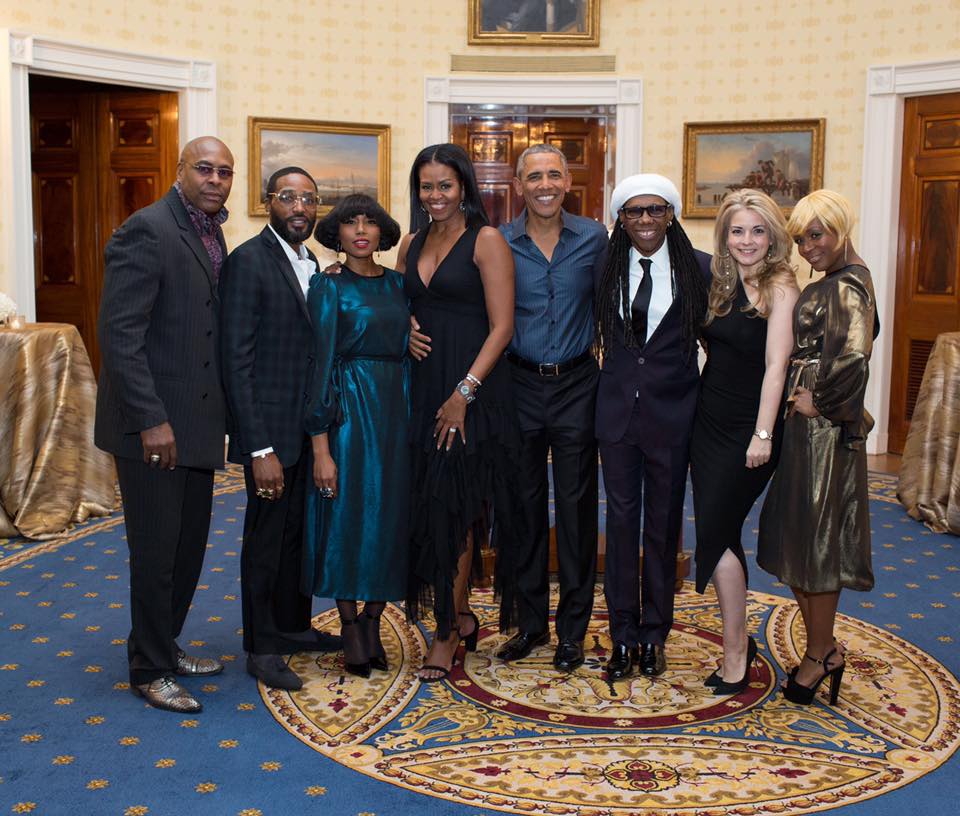
But there are so many things that I’ve experienced in working with the great Nile Rodgers and the things that can happen that I wasn’t even thinking about. Like, oh my God! Just doing Coachella recently… bucket list! Performing in Morocco, of all places!
Like, finally, the first time I get back to Africa to perform, because I went to Africa when I was three… my mother took all five of us, and I had my birthday in Ghana when I turned three… the next time I went back, it was in Morocco performing on stage in front of a massive amount of people. Those things that you just can’t replace, nor did I ever think about doing in the first place. Like, things that should be on my bucket list, to be performing in Africa.
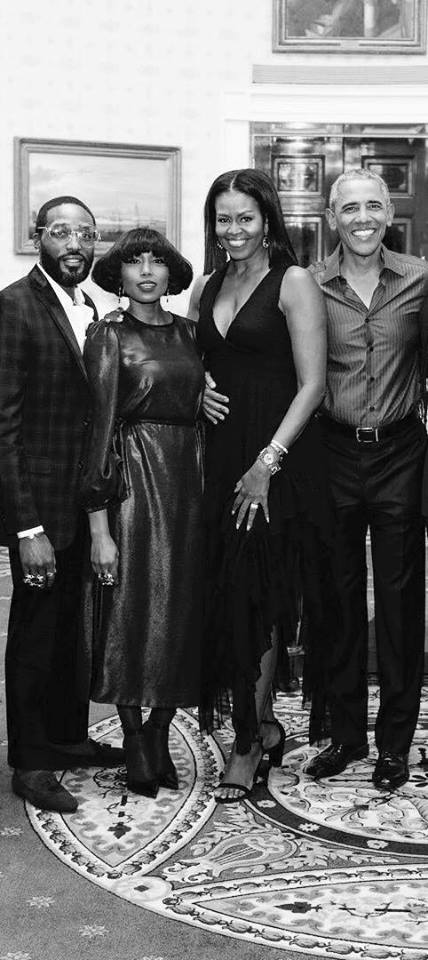
Yeah, I wanted to. But to actually be there was so amazing to me. Meeting Barack Obama! What…?! Who knew I was gonna be performing for his farewell party in the White House? The most epic party on the planet. I could do a whole movie about just that night. Like epic, epic, epic moments!
Things that would have your mouth drop open! Juicy, juicy, juicy (laughing)! But just, the legacy, to be right there at that moment. I feel like the people that I look up to, they say, “I was there when Basquiat was this… I knew Andy Warhol…” and I’m like, “What!?” You know what I mean. So I can say, “I was THERE!” That, right there, is massive to me.
What is different about FOLAMI the solo artist that we don’t see with Folami, lead vocalist with CHIC?
I bring Folami to CHIC. I don’t change who I am because of CHIC. I bring who I am. So everything that I am as a solo artist, I already embody on that stage because it’s the personality that you bring. I just learned, or rather, relearned this from Lionel Richie.
CHIC just toured with him and I was fortunate enough to sit down with him before the tour started. We had dinner with a bunch of the members in the band and he said that as he’s now working on American Idol and trying to do this whole thing, “The one thing I can say is that if you’re super talented and you sing really well, none of that matters. Your personality and what you bring to the stage, and who you are is what matters.”
So that’s actually what I do in CHIC. And that’s what I get praised for. People love the fact that they can feel or think that they know my personality. They think that I’m the sweetest and most amazing person, which I really am. So, I’m very raw and open, and I bring to the stage everything from what I studied at my mom’s school to Howard University, and it’s just… it IS my stage show when I’m performing. I think that keeps it most true and authentic. So it’s very much one and the same.
Give me some insight into ownership as an artist musician and why it was important for you to establish Folluminati LLC?
Folluminati, is my brand, and eventually after I kept bumping my head in the industry of not owning what I have, it just kept me back in many, many ways. It was so important to me to get a handle on my taxes and understand where the money goes, and how I pay myself. That became a real priority after a certain point. You get to a certain age and you’re trying to make investments and buy a home or start to have more stability.
You have to treat your business in entertainment and (please touch on this as advice I’d give to anyone as a startup entertainer or already in the business) you have to own everything. And you have to make your business and your brand very important, just as much as Google and all of these other massive companies.
You have to put that at the forefront. So finally incorporating my business and starting my brand and utilizing it is empowering me to do so many other things that you think you’d be able to do. But it’s just not as easy because you have to have some type of umbrella over being a subcontractor, which is what I am. I’m a subcontractor to CHIC and Nile Rodgers.
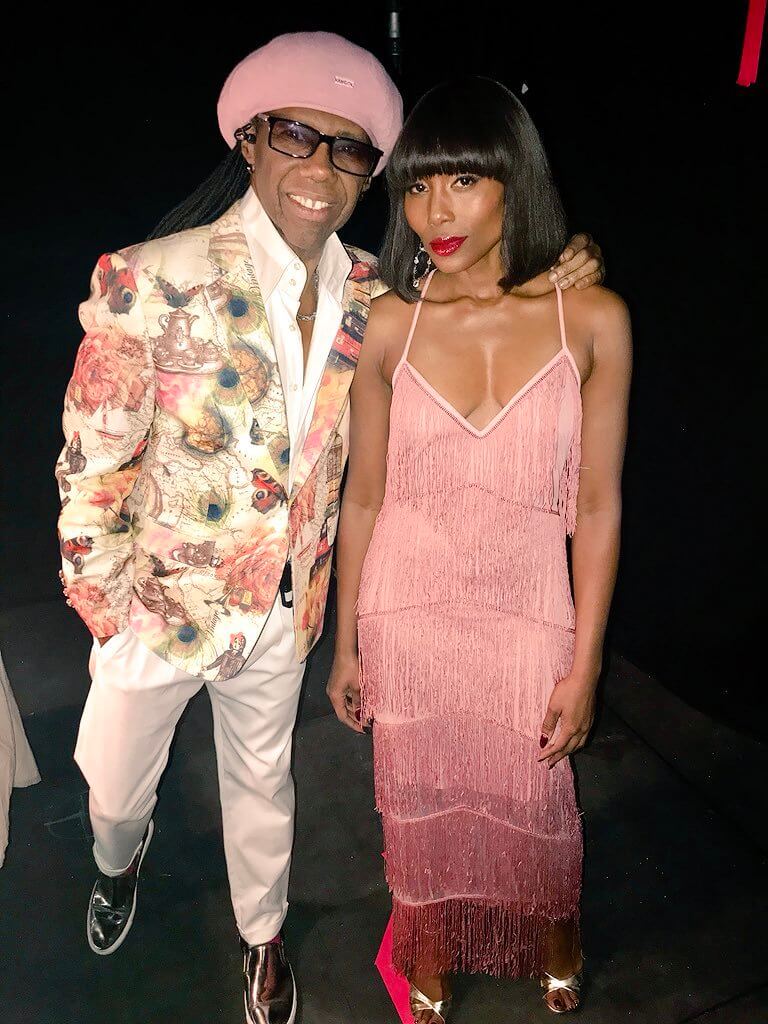
They hire me but I can also go and do something else. It’s very important to understand the business side. And that’s what Howard University taught me: Business Show, not Show Business. So, owning everything and having your own is definitely going to have much more longevity than just slaving for somebody else and giving it all away for years and years at a time. You get residual checks. You get so many other benefits from making sure that you make something more of it and not just working for other people. You utilize the platforms that you have to build and make it better for yourself.
One thing that people wouldn’t know is that I’ve always been sort of a geek. I’m not all the way full on, but I definitely dive myself into social media. I take pride in getting Folami.com before any other “Folami” out there. I had @Folami before any of the others. I knew that it was important to own my name before anybody else. It’s always been important to me.
I come from the beginnings of having an understanding of how important having a website is. There was a startup company where you could go get a website for free in California at a certain time in East Palo Alto. I didn’t even understand it, and wish I’d gone and did it then and knew what it meant. So now I definitely take pride in that. I’m also in the process of researching STEM based programs that deal with education and music, and things like that so that I can be alongside all of that.
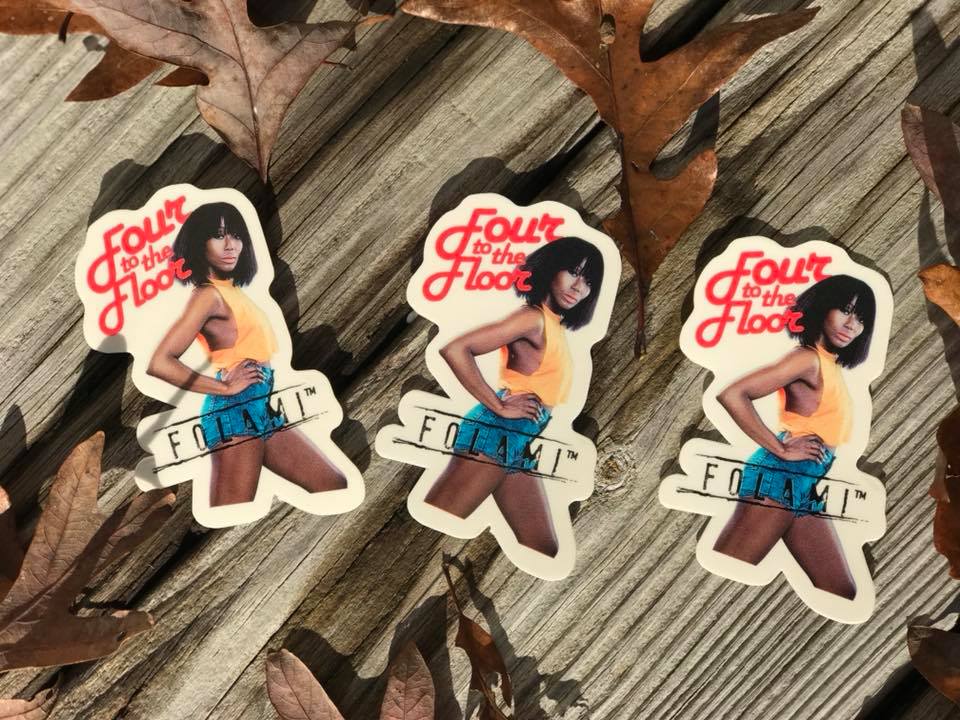
Because STEM is the future. There’s nothing else that’s more important right now. All jobs are centered around that, and schools are switching their curriculum to that as well. So when we think about social media, I think technology, I think about the future. And I’m always trying to stay ahead of that curve. Also, I just saw some of the talk show interviews that Jada Pinkett Smith is doing through Facebook, and I thought it was amazing to use such a simple platform that doesn’t have to be so complex.
I even studied Kim Kardashian’s family because they are rulers of utilizing social media. And in that right, they get so much respect from me. I do follow, and I do watch some of their shows even though people wouldn’t expect it. Because they know how to do this thing.
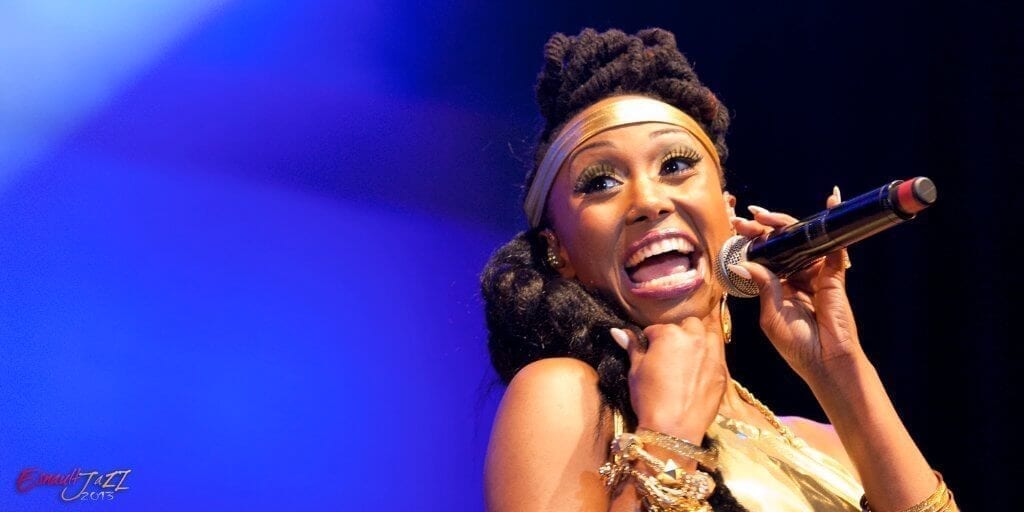
Growing up in Silicon Valley in a neighborhood that was on the brink of the future was really pivotal to my success. I recently traveled back home, and Facebook, Google, Amazon are all in my town, like literally walking distance from where I grew up. We had the foundations of what Silicon Valley was at the time, and now it’s ruling the world. So being in that space and time, it really gave me a big foundation on what I’m doing now with social media and what we all have to deal with. Every single business, no matter what genre or whatever you’re studying or doing, it emcompasses social media and technology.
Your boyfriend Lester is the producer and songwriter for Lester & Folami. Clearly inspiration for the duo is from the 1973 Motown record, Diana & Marvin. Is it your plan to release a duo album in addition to your own solo project?
I met Lester and as soon I saw him I said to myself, “Oh my gosh, he looks like Marvin Gaye! Like, whoa!” Seriously… and, I saw some older pictures from his modeling days, he’s a model-actor-Grammy nominated singer/songwriter. He’s done bits of everything in entertainment as well. And I just knew that our union was more than us just falling in love with each other.
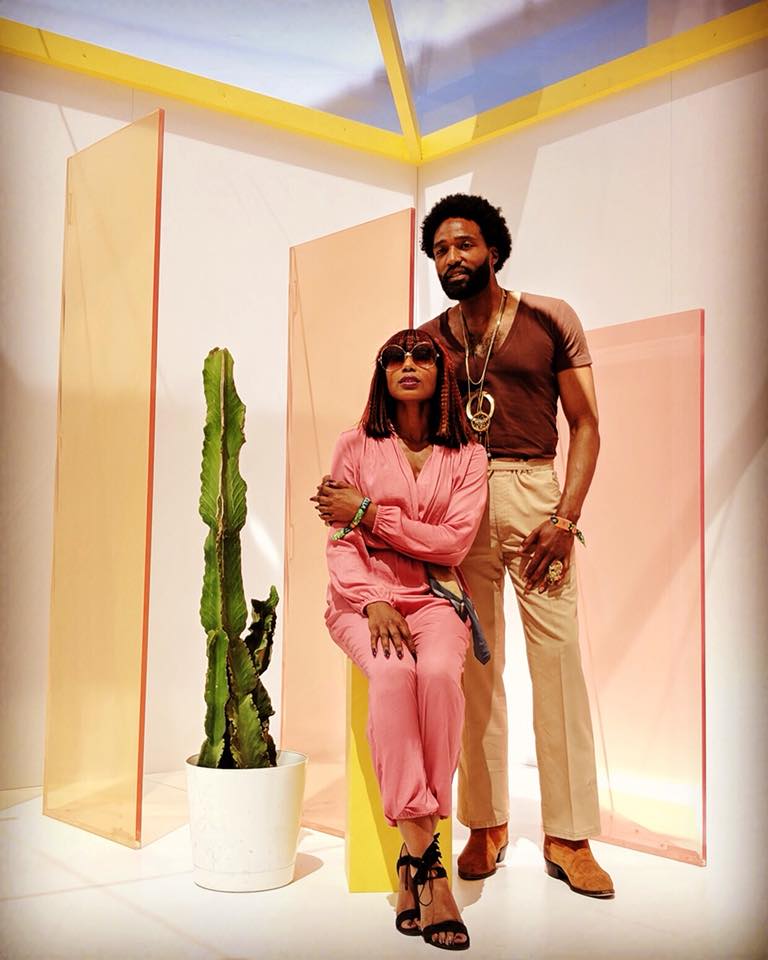
But a real boon into the possibilities that you have to be creative and to be with somebody, have a partner. So, the Ashford & Simpsons, and the Ossie Davis & Ruby Dees, the Diana & Marvins, just all of these duos and also lovers, even though Diana (Ross) and Marvin (Gaye) were not lovers… but the concept of how powerful a duo is. Even Angela Bassett and her husband, Courtney B. Vance, being so powerful and so steady. So consistent. I see Lester and I being consistent in our music, being a duo that can have a revue.
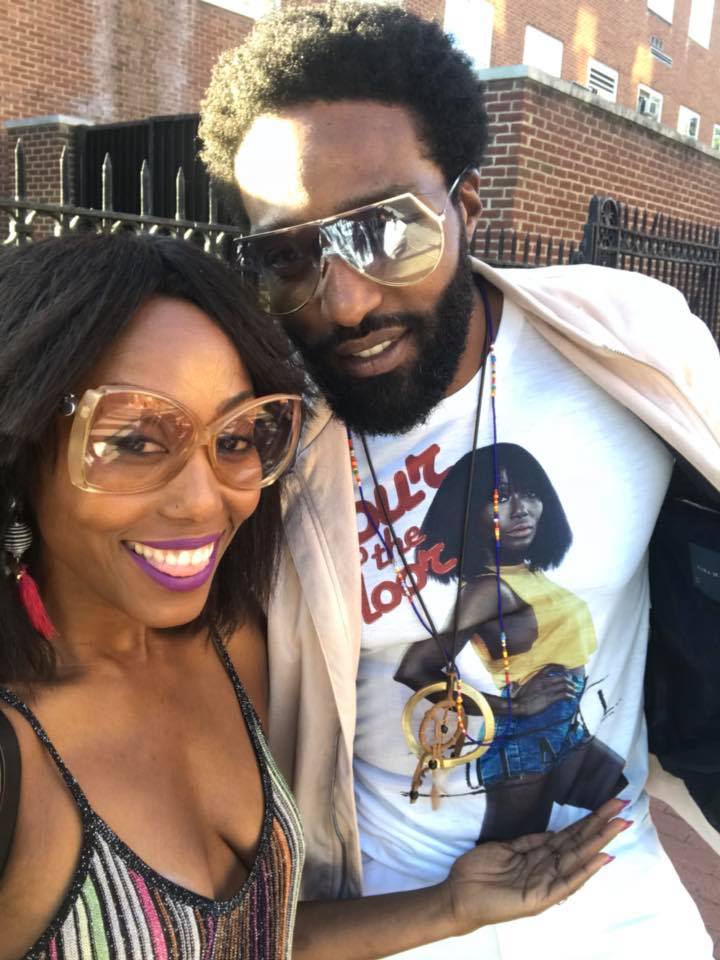
We can be in Vegas doing a Diana & Marvin show that people can see for years and years. I can retire doing something like that. So, yes, there is definitely more music to come. We are working to put together songs and have already recorded a few. We’re taking it in baby steps as I have a really serious schedule and he has a schedule, and we’re just trying to keep it going. But things are definitely brewing.
Do you think it was necessary to get a Bachelor’s of Fine Arts, considering the cost and time it takes to earn a degree, in order to find success in entertainment?
It definitely played a major role in solidifying my foundation and who I became. I will say this, not everybody is equipped to study higher learning but if you are trying to pursue something that is so specific as entertainment, because this is very specific and there are so many aspects to it, it does help to have a foundation like a college education, a bachelor’s degree, or masters.
Because the people that I was connected to from Howard University, the people who taught Debbie Allen and Phylicia Rashad, were my teachers. I gained so much from that, and my ideas and what I do, my tunnel vision comes from those very things that my university professors taught me. It kept me going along with everything else. Just studying performing arts in elementary and high school was important, so for me to keep going was definitely the way to go. But, I just met somebody last night who is a self-taught engineer.
He didn’t study in school and he is the bomb. And I’m like, “You are amazing!” So you just have to know what type of person you are. I think for me, it was better to be under direction, under legacy, under some great people than to just make my way by myself. But there are many people that I look up to who made their way themselves, who are extremely talented, and have all kinds of accolades.
Tell me about Blackness in America as it relates to your legacy.
The great thing about, again, studying in my mother’s institution is that’s when I found out very early on how powerful my Blackness was and how precious it is to me. And so I go now, travelling all over to these places, understanding that all people come from Africa, and that many inventions and ideas came from African people, Black people, and the enslaved.
And when you really understand that then travel the world, you get to see it all first hand. You get to see those people of color still on the walls and in the museums. It’s just sprinkled all over. And there are some places that try to hide it, but it’s definitely real, and we people of color are exactly that. We bring color. We bring life. We bring moods, and we bring things that other cultures don’t necessarily bring all of the time.
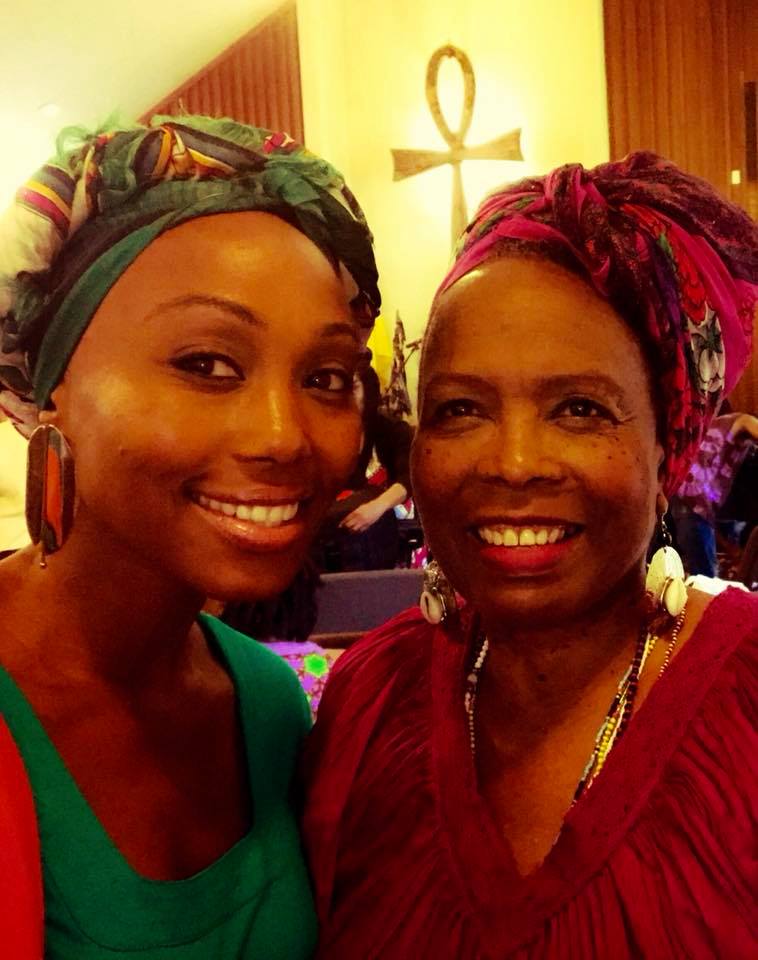
We are definitely much more special than recognized. So with that I will say it’s very important to me that we remain strong in who we are, and confident. Because there are wayyy too many people who are bringing us down. I just watched the Grace Jones documentary Bloodlight & Bami, and the greatness that SHE is, she still has to deal with racism, still fighting as a woman in older age. “I’m not hitting the stage until you pay me, what do you think this is??” Those type of things she’s dealing with… You wouldn’t say that to Celine Dion.
She’s not sitting back waiting for her checks. So, it’s very important that I make sure I have a presence. And people always subtly see it come through with my aesthetic. My Blackness. My Africanity has always been powerful. And it’s always kept me true and grounded. I also want to touch on the fact that I have a nonprofit organization that I’m building with Lester Shaw called Empower The Creator.
And it’s just that, making sure that these children are empowered in knowing who they are and what they can become. So, everything that I’ve learned from my mom, my dad, from Howard, and everybody around me, I want to put into these children and make sure that they are empowered so that they can continue to create and be great.
Visit Folami’s website to learn more.
– Contributed by Mai Perkins
Mai Perkins, aka FlyMai, is Cali girl in a Bed Stuy world with global bon vivant flair and the passport stamps to prove it. She currently works in Edtech, and is the author of several blogs including Uberlicious.nyc and MaiOnTheMove.com and is a columnist for the music publication Pop-Mag.com.
With an MFA in Creative Writing from Sarah Lawrence College and an MA in International Affairs from The New School Milano, she reps her beloved alma mater Howard University every chance she gets. As a poet and a creative non-fiction writer, she looks forward to soon publishing her first manuscript, The Walking Nerve-Ending.

Insta: @flymai16
Twitter: @flymai on Twitter

